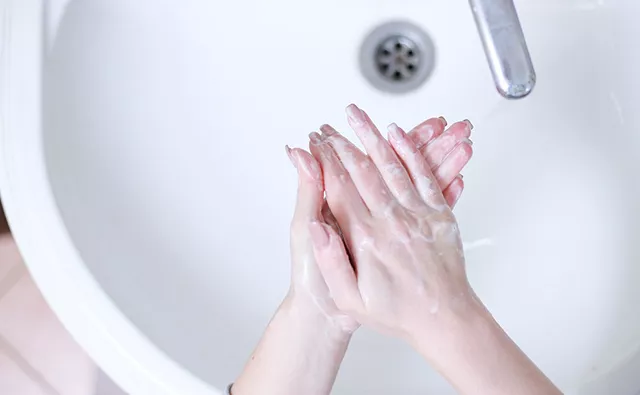Industry News, HI&I Cleaning Care
Gentle cleansers are as effective as harsh soaps at killing viruses: study

Industry News, HI&I Cleaning Care

Gentle cleansers are just as effective in killing viruses as harsh soaps, according to a new study by University of Sheffield.
Dermatologists tested multiple hand-wash products including antibacterial soap, natural soap, foam cleansers and bath wash products as part of the study. They assessed the products’ ability to kill enveloped viruses such as human coronavirus and influenza – which have an additional layer of structural protection – compared with non-enveloped viruses such as norovirus and adenovirus.
The study revealed that gentle cleansers were just as effective at killing enveloped viruses as harsher, less skin-friendly products. However, non-enveloped viruses demonstrated greater resistance across all types of hand washing products, both harsh chemical substances and milder solutions, while norovirus demonstrated the greatest resilience against soap.
According to lead author Dr Munitta Muthana most healthcare professionals will need to wash their hands as many as 100 times during a 12-hour shift – a practice that can result in poor hand health.
“Irritant contact dermatitis causes the skin to become inflamed, blister and crack and can also significantly impact workplace productivity,” she said.
“Our study has shown that substituting harsh soaps with milder products such as gentle cleansers is effective in fighting against enveloped viruses which is very encouraging – especially for people in jobs where irritant contact dermatitis is an occupational hazard.”
The study authors also found that the use of additional agents such as moisturisers resulted in no adverse effects on antiviral activity.
Click here to see the full report “Are mild cleansers appropriate for hand hygiene in the COVID era? An in vitro investigation of the antiviral efficacy of different hand hygiene products”
Authors: Natalie Winder, Zahra Ashraf, Sara Gohar, Nada Baalbaki, Micheal Cork, Simon Danby and Munitta Muthana
Washing hands with soap and lukewarm water for 20 s is a fundamental measure advocated especially within the UK to help control the spread of viral disease. However, these practices can induce irritant contact dermatitis, particularly in healthcare professionals (HCPs). HCPs typically manage their condition by replacing soap or alcohol-based hand sanitizers with cleansers containing mild surfactants and/or emollient ingredients [skin-friendly cleansers (SFCs)] to mitigate skin damage and/or using topical emollients after washing for repair. Despite this widespread practice, there is very limited evidence supporting the efficacy of these interventions in the prevention of viral propagation.
Enveloped viruses demonstrated greater susceptibility over a range of test products, suggesting some SFCs are a suitable alternative to soap (depending on the presence of a viral envelope). However, no virucidal activity was observed for non-enveloped viruses. Water type (i.e., soft/hard) and pre-exposed hand hygiene conditions (i.e., clean/dirty) made little difference to the effectiveness of both soaps and SFCs. Therefore, new hand hygiene regimens should be implemented based on trying to encompass all viruses with varying structures, with specific emphasis on the absence of a viral envelope.